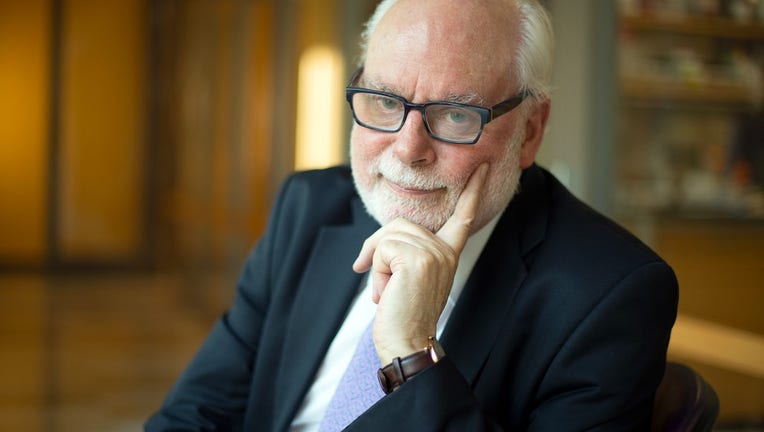Sir Fraser Stoddart, Nobel Prize-winning Northwestern University chemist, dies at 82

Sir Fraser Stoddart, who taught chemistry at Northwestern University and was awarded the Nobel Prize in 2016, died last month at the age of 82.
EVANSTON, Ill. - Sir Fraser Stoddart, who taught chemistry at Northwestern University and won the Nobel Prize in 2016, died last month at the age of 82.
Stoddart was known as a pioneer in the fields of nanoscience and organic chemistry. He shared the Nobel Prize, with Jean-Pierre Sauvage and Bernard L. Feringa, "for the design and synthesis of molecular machines."
Stoddart contributed to the development of molecular machines, for example, by developing a "rotaxane" in 1991. Such machines could be used for new materials, sensors and energy storage systems, according to the Nobel Prize Organization.
"Fraser was a giant in fields of nanoscience and organic chemistry, but his influence was equally impressive in the classrooms and labs on our campus," said Northwestern President Michael Schill in a statement. "He was incredibly generous with his time and mentored so many students and faculty, helping pave important new paths of inquiry and discovery. His impact on our university — and the world — was enormous."
Stoddart mentored more than 500 graduate and postdoctoral students from around the world during his career, according to the university.
He was also appointed by Queen Elizabeth II as a Knight Bachelor in her 2007 New Year’s Honours Life for services to "Chemistry and Molecular Nanotechnology."
Before coming to Northwestern, Stoddart also taught at the University of California at Los Angeles and the University of Birmingham in England.
A native of Edinburgh, Scotland, Stoddart received his bachelor’s degree, and two doctorates from the University of Edinburgh. He is survived by his two daughters and five grandchildren.

